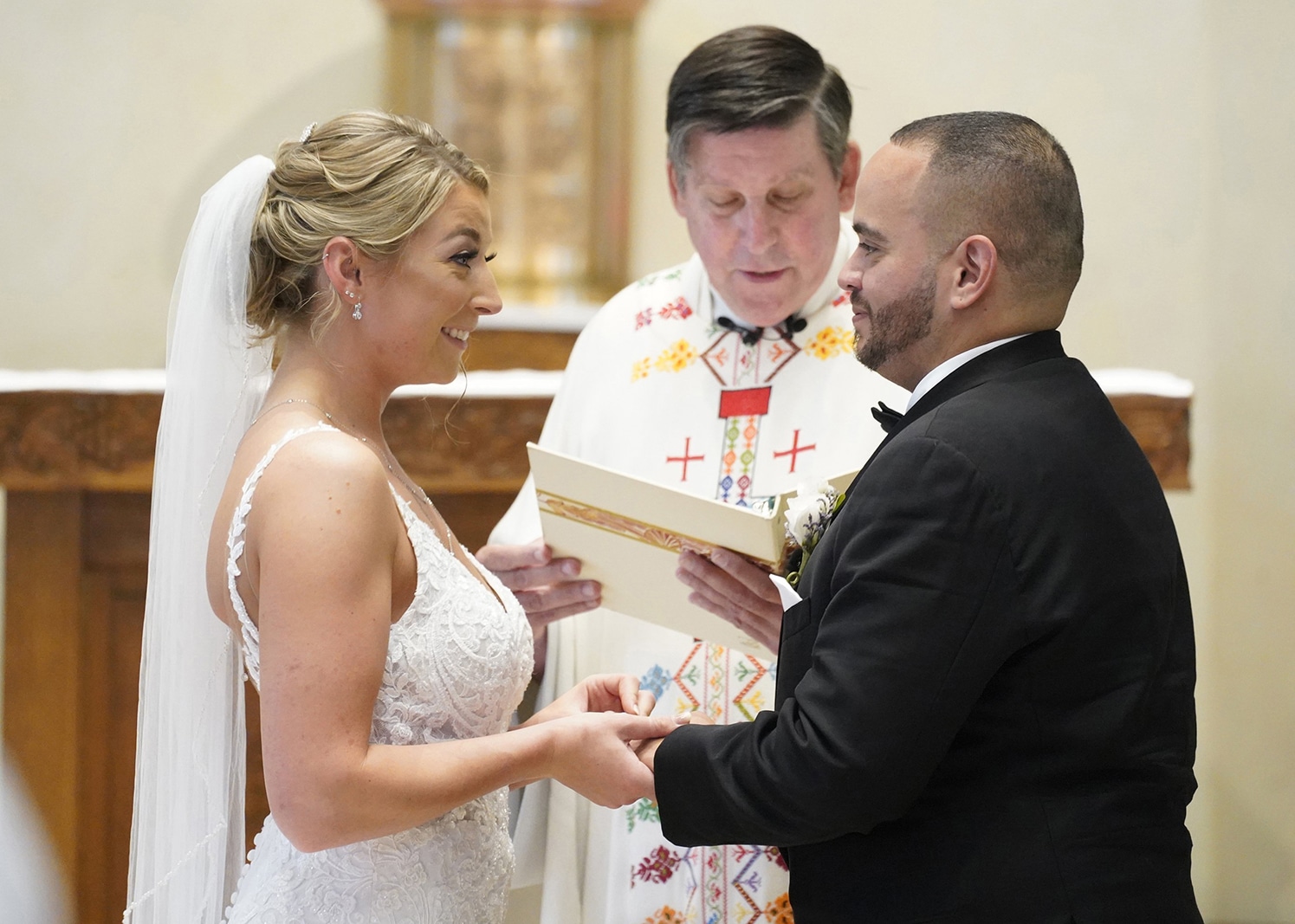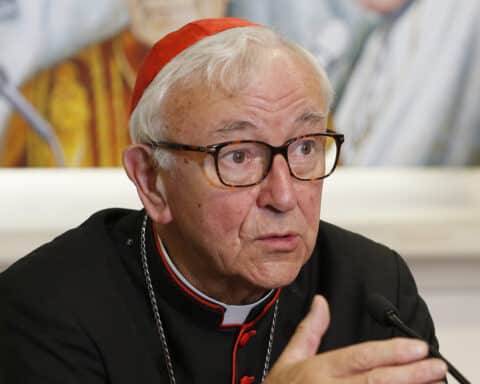WASHINGTON (OSV News) — “Love Means More,” a new teaching initiative of the U.S. Conference of Catholic Bishops, has a statement of purpose, a website and a promise to keep building the website to provide answers on a wide variety of questions about Catholic teaching on love, sexuality and marriage.
The premise speaks to the simple question of what “I love you” can portend.
“Imagine sincerely saying this to someone for the first time, and getting the response, ‘What do you mean?’ In that moment, the stakes would be too high to pause for a calm, honest exploration of this question. That’s why this site exists,” states the website, lovemeansmore.org.
The initiative is led by Bishop Robert E. Barron of Winona-Rochester, Minnesota, chair of the USCCB’s Committee on Laity, Marriage, Family Life, and Youth. Bishop Barron also is the founder of Word on Fire Catholic Ministries, author of numerous books and articles, and has a podcast and video presentations via YouTube.
“Conversations about love, marriage, sexuality, family, and the human person can be confusing and polarizing,” Bishop Barron said in a Feb. 21 news release, adding that he hoped the initiative would “help bring clarity and compassion to those questions.”

Renews and replaces ‘Marriage: Unique for a Reason’
“Love Means More” renews and replaces “Marriage: Unique for a Reason,” an initiative launched by the U.S. bishops in 2011. It will “still allow us to defend marriage, but now as part of a larger set of questions about family, sexuality, and the human person,” according to an announcement on the marriageuniqueforareason.org website.
According to the USCCB, the new initiative has a broader scope than just the Sacrament of Matrimony, addressing “questions and concerns received from people who are uncomfortable with some Church teachings. These include those who uphold the possibility of divorce and remarriage, LGBT-identifying individuals, and those who defend pornography.”
Addresses concerns
Developed through “wide consultation” with bishops, pastors, educators, medical and mental health professionals, and lay Catholic leaders involved with family life ministry, the initiative “also has heard, and seeks to address, questions and concerns received from people who are uncomfortable with some Church teachings,” the news release said.
Reflecting long-held Catholic teaching, Bishop Barron observed in his statement that “cultural narratives tell us love is mostly about feeling good. True love is deeper than that, calling us to follow Christ’s example of sacrificial love so we can live in union with Him forever.”
The “Love Means More” website takes a kind of “stacking doll” approach to unpacking the Church’s teaching. It starts with one question “What is Love?” which then opens into other topics and related questions: “Is love a feeling?” “Willing the Good” and “Eros + Agape.” Each new topic then leads into its own related subtopics. For example, “Eros + Agape” opens up two further topics — “biological sex” and “sexual relationships.” Those new topics in turn become the basis for opening into their own related subtopics, and so forth.
Teaching on other issues will be added over time.
The U.S. bishops’ new initiative comes as the Church is grappling with how to engage people in the modern world, helping them encounter the love of Jesus Christ within the life-changing demands of his Gospel.
In December, the Vatican issued a narrow set of guidelines — Fiducia Supplicans (“Supplicating Trust”) on “the pastoral meaning of blessings” — addressing the possibility of informal, non-liturgical blessings for Catholics in irregular or same-sex unions.
The Dicastery for the Doctrine of the Faith’s declaration said a request for a blessing can express and nurture “openness to the transcendence, mercy and closeness to God in a thousand concrete circumstances of life, which is no small thing in the world in which we live. It is a seed of the Holy Spirit that must be nurtured, not hindered.”





